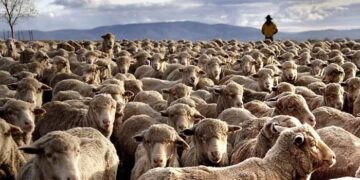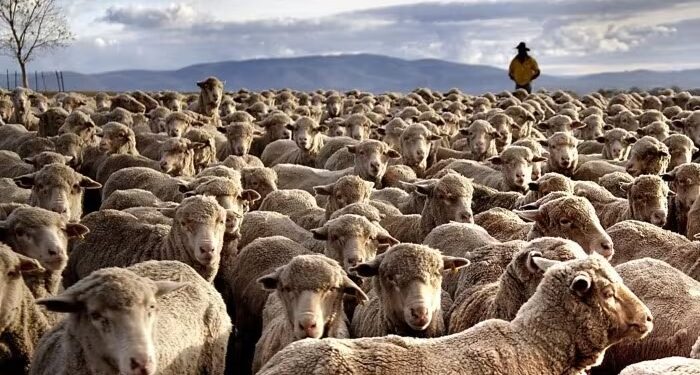By John Ikani
Australia’s surplus of mutton has triggered a significant drop in prices, compelling some farmers to make the tough decision of culling or giving away their sheep to cut costs instead of raising them on-farm.
According to data from Meat and Livestock Australia (MLA), mutton prices have plummeted by a staggering 70% over the past year, reaching a low of $1.23 per kg.
“Australia has experienced several favourable seasons in recent years, resulting in a sheep flock of 78.75 million head – the largest since 2007,” highlighted Tim Jackson, MLA’s global supply analyst.
The substantial increase in the sheep population can be attributed to three consecutive years of above-average rainfall in key sheep regions, including New South Wales and Victoria. The ample rainfall has created optimal conditions for grass growth, essential for livestock feeding and breeding.
“The more it rained and the longer the market stayed buoyant, the more it drove producers to retain sheep they’d otherwise turn off, and as a result, numbers continued to grow,” explained Andrew Spencer, chairman of Sheep Producers Australia.
Unfortunately, the surge in sheep numbers has led to a surplus, causing prices to nosedive and impacting the profitability of farmers who are now grappling with extended feeding periods amid worsening weather conditions.
The Australian Bureau of Meteorology reported the driest September on record and predicted ongoing unfavourable weather patterns, including a persisting El Nino and a positive Indian Ocean Dipole event, signalling hotter and drier months ahead.
This adverse weather is expected to diminish feed supply, prompting farmers to seek ways to reduce their flock, potentially involving sending livestock to slaughterhouses and meat processors.
“Conditions in 2023 have been drier than the last three years, affecting producer confidence and increasing the supply of sheep and lambs to processors,” remarked Jackson.
Despite the efforts to decrease the sheep population, meat processing facilities are facing challenges, struggling to cull the high volume of sheep due to labour skill shortages and a backlog of unprocessed stock from the previous year.
Australia, a leading global producer and exporter of sheep meat, is now experiencing downward pressure on global wholesale prices due to the oversupply.
While major Australian supermarket chain Woolworths Group has announced a 20% cut in lamb product prices, the retail discounts have not been fully reflected for consumers. However, the surplus of sheep meat is gradually moving, with expectations of continued price dips for consumers both within Australia and overseas.
In response to the challenging circumstances, some farmers are considering not mating their ewes to reduce costs, potentially leading to a rapid shift in the sheep market from oversupply to undersupply.
A recent survey by the National Farmers Federation revealed that over 60% of Australian farmers surveyed did not feel more positive about the future of farming compared to a year ago.




































